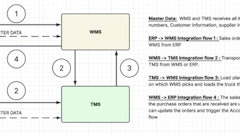Ponzano, Italy — April 9, 2003 — Italian clothier Benetton Group may proceed with a plan to embed radio frequency identification (RFID) tags in millions of garments made for sale under its various brand names, but then again, maybe it won't.
Last month reports surfaced that the group was working with solution providers Royal Philips Electronics, LAB ID and Psion Teklogix on a project to tag and track clothing items from production to point of sale in the fashion industry's most ambitious item-level tagging implementation of RFID to date. (See related story.)
But following those initial reports, some consumer watchdog groups expressed concerns that the RFID chips could represent an invasion of consumers' privacy, particularly if the chips could not be "turned off" or made inactive after a garment is purchased and leaves the store, potentially allowing a consumer to be tracked along with his or her new garment.
For example, on the Web site of one such privacy group, New Jersey-based Junkbusters, which has a section on its site called "How RFID devices may bug your personal possessions," the group's president, Jason Catlett, said of the Benetton project: "I don't care how much stakeholder value they might think they can create by implanting bugs into peoples' clothes. A socially responsible company shouldn't even be [considering] such an idea without a prior public commitment that no tracking device will ever beam its ID off a customer's skin."
Another group, Consumers against Supermarket Privacy Invasion and Numbering (CASPIAN), which has opposed food stores' "loyalty" programs that use shoppers' cards to track consumers' purchases, was moved to set up a "boycottbenetton.org" Web site to oppose the clothier's project. "We would rather go naked than wear clothing tagged with spy chips," the group's founder and director, Katherine Albrecht, a Harvard University doctoral candidate, said in a statement posted on the group's site.
Perhaps more important, the Associated Press has reported that some financial analysts caught off guard by the initial RFID announcement turned to Benetton with questions about the potential cost and return on investment of what some view as an as-yet-unproved technology.
Moving to cool the brewing brouhaha, Benetton last Friday released a statement clarifying that it was still examining its RFID options and, more to the point, was not yet embedding the tags in its clothing.
"No microchips ... are present in the more than 100 million garments produced and sold throughout the world under its brand names, including the Sisley brand," the company's statement read. "Benetton ... is currently analyzing RFID technology to evaluate its technical characteristics and emphasizes that no feasibility studies have yet been undertaken with a view to the possible industrial introduction of this technology."
In a nod to the consumer groups' concerns, the company said its evaluation would include a "careful analysis of potential implications relating to individual privacy," although Benetton added that "the company reserves the right to take the most appropriate decision to generate maximum value for its stakeholders and customers."
Despite the Benetton hullabaloo, consumer package goods companies are likely to continue their RFID efforts because of the hoped-for improvements in inventory tracking and the potential for reducing store theft and counterfeiting.
For instance, Peter Abell, an analyst with technology consultancy AMR Research, noted in a recent news alert that Gillette appears set to continue its own massive RFID project even though it will likely have to rely on two different systems for use in Europe and the United States due to varying standards. "Gillette, which has the onus of producing two of the top five most stolen articles in the world (Mach 3 razorblades and Duracell batteries), certainly sees the benefits of this type of standards-based technology and is willing to invest in multiple systems to meet geographical needs," Abell wrote. "Companies that produce for the global market need to explore numerous alternatives to meet regulations for all regions."
What the Benetton case shows is that in addition to technology standards, companies may also have to take varying privacy standards into account as well.
For more information on the RFID project underway at Gillette, see the iSourceonline article "Gillette Eyes Wireless Supply Chain."
For more information on RFID-based tracking solutions for the supply chain, see "Needle in a Supply Chain Haystack," the Net Best Thing column in the January 2002 issue of iSource Business.















